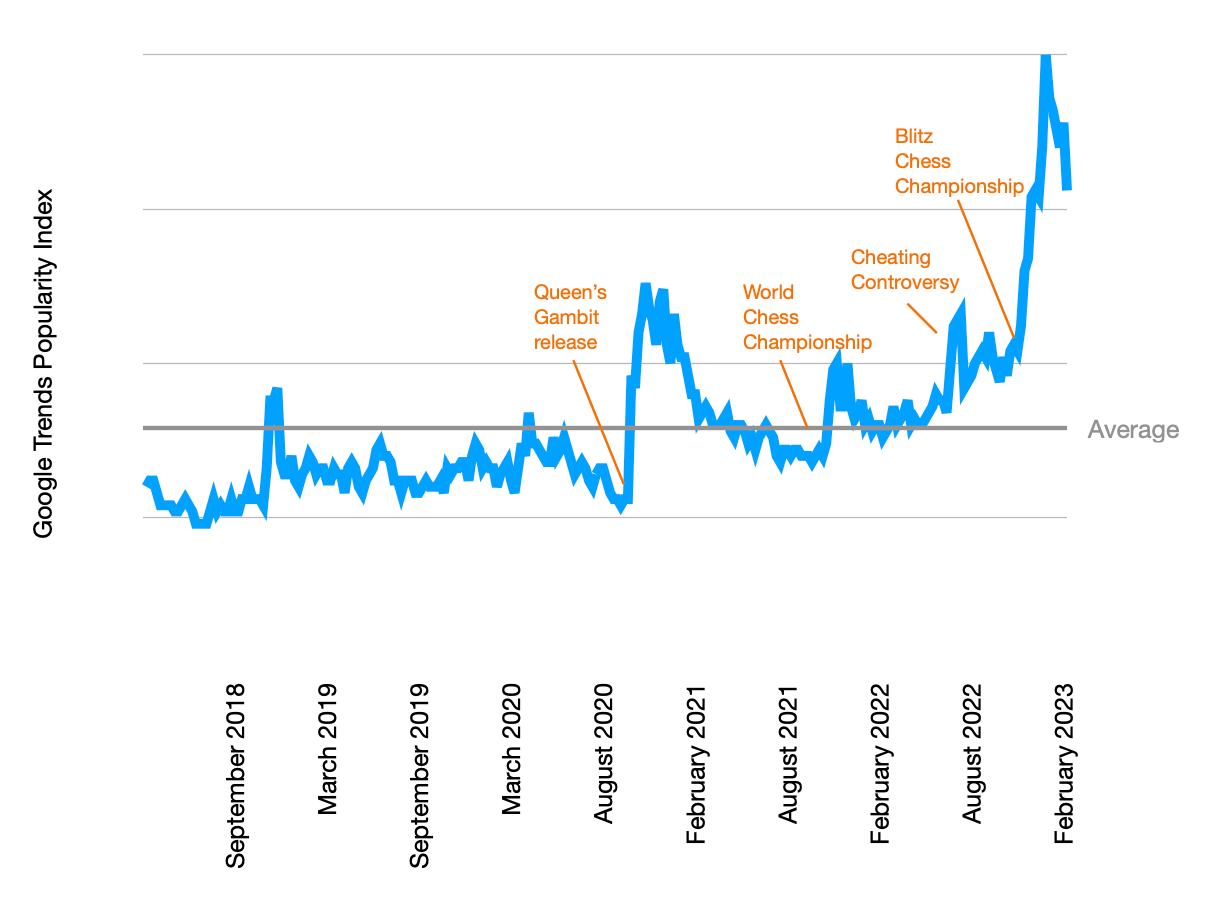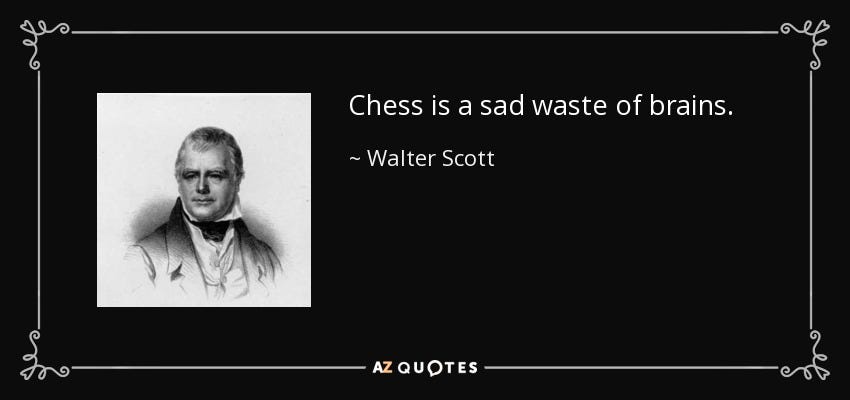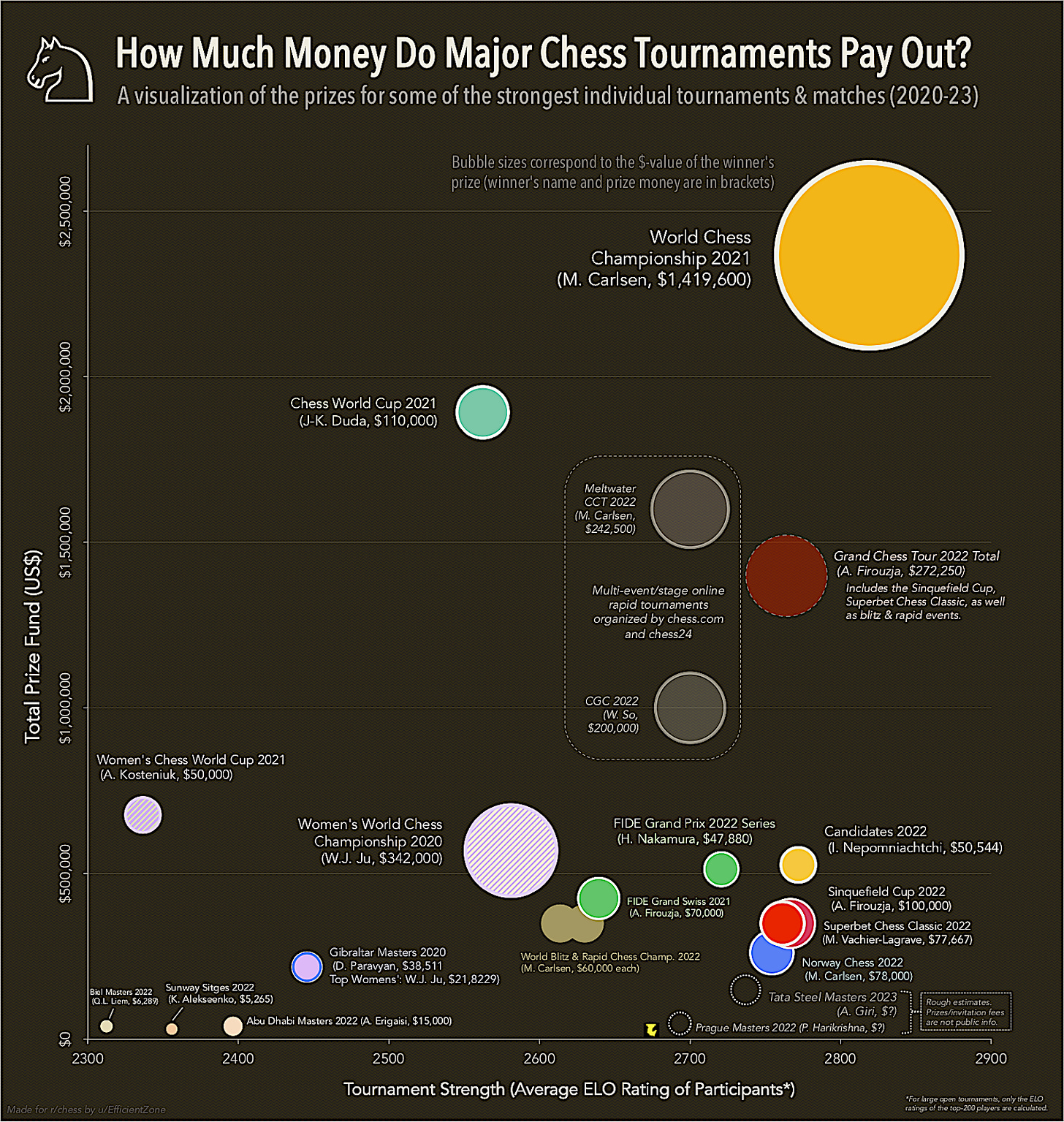Why is Chess "blitzscaling"?
The worldwide popularity of Chess has been on a tear lately. This is an attempt to explain why and what we can learn from it.
At first glance, it appears there have been a few key moments and events that have led to the current surge in the game’s popularity. According to Daniel Rensch, Chess.com Chief Chess Officer :
This is a special time for chess. More people are playing and watching chess than ever before. Events like PogChamps, the Speed Chess Championship, and the Champions Chess Tour have changed the game forever. We believe there is an opportunity here to take chess to new heights by combining our efforts, and we are seizing that opportunity.
In August 2022, Chess.com acquired Play Magnus Group, an entity co-founded by Magnus Carlsen, the World Champion at a valuation of 800 million kr (US$80 million). The acquisition was officially closed on December 16, 2022.
Perhaps the interest in Chess will linger or perhaps this is all just a blip in a long but eventual secular decline in the game’s popularity. Be that as it may, there are lessons to learn and other digital transformation frameworks to borrow from to explain the current phenomenon. This article aims to leverage learnings from the author’s experience with digital transformation in Fortune 500 companies to explain and learn from the current phenomenon.
1. Digitization of the game with Proven and Accessible Solutions
The game of chess has long been extremely friendly to digitization. One doesn’t need complex graphics, the rules are easy to implement and, if needed, the game can do without an always-on internet connection to communicate moves with another player. So, the basic precursor in the form of a proven and accessible digital solution has been there for a while.
2. Persuasion Mechanics especially Social Proof and Authority
Social Proof
Social proof is a psychological and social phenomenon wherein people copy the actions of others in choosing how to behave in a given situation. The term was coined by Prof. Cialdini in his 1984 book Influence: Science and Practice, and the concept is also known as informational social influence.
Online social media (with likes, shares etc) and ecommerce platforms (ratings & reviews) have long leveraged this phenomenon. In the Chess world, this mechanic has recently been turbocharged by Grand Master level influencers on YouTube, Twitch and TikTok. In addition, new online competition sites have dramatically expanded the ability of people from anywhere in the globe to engage in Social Proof by viewing, engaging, competing with one another and earning rating points. TikTok and formats such as YouTube Shorts have been favorable to this mechanic with content from speed/blitz games.
 Tiktok failed to load.
Tiktok failed to load.Enable 3rd party cookies or use another browser
Authority
Per Cialdini, people often react in an automated fashion to commands from authority and even to symbols of authority, such as degrees and diplomas.
The Chess equivalent of symbols of authority are the Elo rating system and the Grand Master (GM) title awarded by FIDE and held for life. Authority figures such as GM Hikaru Nakamura, GM Magnus Carlsen, GM Anish Giri, and many others, have been more open to commenting on platforms such as YouTube, participating in global online competitions and exploring newer formats of the game. YouTube chess content creators @Agadmator, @GMHikaru and @GothamChess have amassed over 2 Billion views, most of these in the last 3 years. Online chess sites such as chess.com and chess24.com have also benefited from innovation in ratings with new rating systems such as Glicko that improve and augment the Elo system. This allows for a powerful confluence of the Authority (one can go up the authority ladder via ratings online) and the Social Proof mechanic.
3. Cultural Relevance of Gaming (“Tailwinds”)
While cultural relevance is correlated to Social Proof, it is an important point to bring out separately. Being a part of the cultural “tailwind” of Online Gaming surely doesn't hurt. Gartner has, after all, built a whole business trying to identify such tailwinds and where they are in the “Hype Cycle”. This quote from David Deutsch, the founding father of Quantum Computing, summarizes the current cultural tailwind and Chess’ place in it well:
And it’s funny that nowadays, chess has, in our society, increased its status in proportion to the prize money that the best chess players win. It increased its status to the point, when someone gets obsessed with chess and gets better and better, that is socially condoned. Whereas if somebody does that with a different game, it completely changes how society and parents, shall we say, regard the activity of pursuing that thing.
To Deutsch’s point, it is important to also recognize that not too long ago Chess had a status similar to other games.
4. Democratization of Learning and Upskilling
While Chess already funnels for a learning mindset (most people who play chess are perpetual learners), publicly and commercially available chess-playing Engines such as Stockfish, Leela Chess Zero, Komodo and Fritz have democratized learning and upskilling. Chess used to be a lot more elitist because the best teachers were hitherto not accessible to a large proportion of the population. Engines and well-documented analyses of past games have dramatically democratized access to superhuman AI teachers in addition to human ones.
5. Trigger(s)
Finally, even with the above factors in place, one needs a trigger or a set of triggers to ignite and sustain the popularity of any digital transformation effort.
COVID
We all saw how COVID triggered and drove rapid acceleration of many digital trends. As kids in key Chess playing countries, US, Russia, India and other markets were forced to remain home in the early months of the pandemic, many took to online learning and gaming.
The jump in Chess was also driven by serendipitous events such as the Queen's Gambit which was released by Netflix on October 23, 2020 and became Netflix’s most watched scripted miniseries. Over 62 million households viewed the seven-episode drama in the month following its release.
Controversy
Over the years, the popularity of chess has repeatedly been punctuated by controversies. During the Sinquefield Cup in September 2022, for example, a controversy arose involving chess grandmasters Magnus Carlsen (the current world champion), and Hans Niemann where Hans was accused of cheating using one of the many AI Engines in the market.
Funding
When one doesn't have a Burning Platform, triggers for change can be hard to come by. This is where a step change in funding available (via advertising, grants or a well-funded business transformation program) can act as a trigger as well. Chess has seen a dramatic increase in funding from advertisers and even PE firms such as General Atlantic as investors.
Practitioners of digital transformation in companies would do well to learn from the popularity of Chess. The game has clearly benefited from a confluence of factors:
Proven and accessible digital solutions
The use of persuasion mechanics
Cultural relevance and tailwind
A learning mindset and democratization of learning
Triggers
Now, it remains to be seen if the interest in Chess will linger this time. Perhaps it will…








